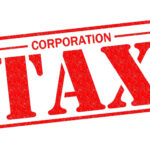The rise of non-fungible tokens (NFTs) has created new opportunities for artists, gamers, and businesses. However, for anyone venturing into this space, selecting the right blockchain platform is a critical decision. The blockchain you choose impacts transaction speed, costs, security, scalability, and even the success of your NFT project. Whether you are an individual creator or an NFT development company, this guide will walk you through the key factors to consider while choosing the right blockchain for NFT development.
Learning the Fundamentals of NFTs and Blockchain Platforms
NFTs represent digital ownership of unique assets such as art, music, in-game items, and collectibles. Unlike cryptocurrencies like Bitcoin, NFTs are indivisible and carry unique metadata, making them one-of-a-kind. These tokens rely on blockchain technology to validate their uniqueness and ownership.
Different blockchain platforms offer distinct features, so the right choice depends on your specific goals, audience, and budget. Before delving into key criteria, you must understand that the chosen blockchain will affect your NFT ecosystem’s performance, including transaction costs, interoperability, and user experience.
2. Key Factors to Consider When Choosing a Blockchain Platform
a) Transaction Fees (Gas Fees)
Gas fees are the transaction costs paid to blockchain miners for processing transactions. For NFT platforms, high gas fees can discourage users from minting or trading NFTs. Ethereum, despite being the most popular blockchain for NFTs, is notorious for its fluctuating gas fees. If cost-efficiency is a priority, you might explore alternatives like Polygon, Binance Smart Chain (BSC), or Solana.
Many NFT development companies now focus on building platforms on chains with low gas fees to attract users.
b) Scalability and Speed
Scalability refers to a blockchain’s ability to handle increasing numbers of transactions without slowing down. Platforms like Ethereum 2.0 and Solana have emerged as leaders in scalability. Ethereum’s transition to a proof-of-stake model promises faster transactions, while Solana is known for its lightning-fast processing.
If your project expects high traffic or frequent NFT trades, consider a platform with high throughput to ensure seamless performance.
3. Interoperability and Cross-Chain Support
Interoperability allows NFTs to move across multiple blockchain networks, providing flexibility for users and enhancing market reach. A blockchain platform that supports cross-chain bridges can expand your NFTs’ visibility and trading potential. Platforms like Polkadot and Cosmos focus heavily on interoperability, enabling NFT projects to interact with multiple ecosystems.
Choosing an interoperable blockchain platform ensures that your NFTs can be easily traded across various marketplaces, increasing liquidity and adoption.
4. Security and Decentralization
Security is non-negotiable for any blockchain project. A decentralized blockchain ensures that no single entity can control the network, reducing the risk of hacking or fraud. Ethereum is a highly decentralized platform, making it one of the most secure options for NFT development. On the other hand, newer chains may offer higher speeds but compromise on decentralization, which could affect long-term security.
It is essential to partner with a reliable NFT development company that prioritizes security and follows best practices to ensure your NFT platform is protected against vulnerabilities.
5. Smart Contract Functionality and Ecosystem Support
Smart contracts automate processes such as NFT minting and royalty distribution without human intervention. Ethereum offers robust smart contract functionality and supports the largest ecosystem of developers, tools, and marketplaces like OpenSea. However, newer platforms like Flow have emerged, optimized specifically for NFTs, offering a developer-friendly environment.
When selecting a blockchain, evaluate the platform’s developer community, tools, and compatibility with NFT marketplaces.
6. User Experience and Market Adoption
The success of your NFT project also depends on the user experience of the blockchain platform. Platforms with easy wallet integration, intuitive tools, and widespread market adoption attract more users. Ethereum currently leads in market adoption, but platforms like Flow and Tezos offer simple onboarding experiences and are gaining traction among artists and creators.
For startups and NFT development companies, choosing a user-friendly blockchain can make a significant difference in adoption rates.
7. Environmental Impact and Sustainability
Environmental concerns have become a major talking point in blockchain development. Some blockchains, like Ethereum, have faced criticism for their energy-intensive proof-of-work consensus. However, platforms such as Tezos, Flow, and Algorand focus on sustainable, low-energy solutions.
If sustainability is a core value for your NFT project, opting for an eco-friendly blockchain can align your platform with environmentally conscious consumers and creators.
8. Long-Term Viability and Upgradability
The blockchain landscape evolves rapidly, so choosing a platform with long-term potential is crucial. Ethereum’s transition to Ethereum 2.0 reflects its adaptability, while chains like Flow continue to introduce new features aimed at creators. A platform with an active development community, regular upgrades, and a clear roadmap will ensure your project remains relevant in the future.
Partnering with an experienced NFT development company can provide valuable insights into emerging technologies and trends, helping you future-proof your platform.
9. Popular Blockchain Platforms for NFT Development
Here’s a brief overview of some popular blockchains for NFT development:
- Ethereum: Most popular for NFTs, with robust smart contract support, but high gas fees.
- Solana: High-speed and scalable, suitable for fast-moving projects with low fees.
- Polygon: A Layer 2 solution on Ethereum offering lower gas fees and faster transactions.
- Flow: Designed specifically for NFTs with user-friendly tools and marketplaces.
- Binance Smart Chain (BSC): Offers low fees and supports Ethereum-compatible smart contracts.
- Tezos: Known for sustainability and eco-friendly consensus mechanisms.
Each of these platforms offers unique strengths, and the right choice depends on your project’s specific needs.
Conclusion: Choosing the Right Blockchain for Your NFT Project
Selecting the best blockchain for NFT development involves balancing multiple factors, including transaction costs, scalability, security, and market adoption. No single blockchain platform fits all projects, so it’s essential to evaluate your project’s goals and audience before making a decision.
Collaborating with the trusted app development company ensures that you have access to industry expertise and the latest tools to build a successful NFT platform. The right blockchain platform, combined with a well-executed development strategy, can elevate your NFT project and attract a broader audience.


